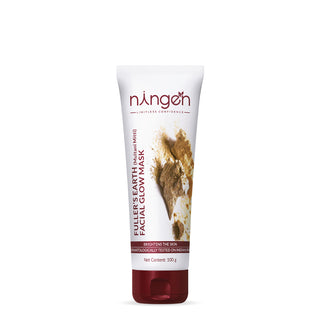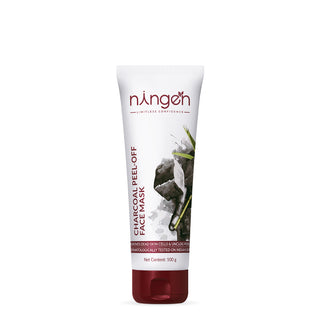“Glowing skin starts with a great face mask”.
A You can transform your skin with a face mask. Depending on the type, a face mask can hydrate your skin, making it feel soft and smooth. Regular use of face masks can leave your skin looking clearer, more radiant, and refreshed.
Choosing the right face mask for your skin concerns can significantly affect your skincare routine. It can be overwhelming to find the perfect match among so many options. Whether you’re dealing with dryness, acne, or dullness, understanding the specific benefits of different face masks can help you address your unique needs. In this guide, we'll explore how to choose the right face mask for your skin concerns
In This Article;
- What Are Face Masks?
- Benefits of Face Masks
- Understand the Different Types of Face Masks
- Identify Your Skin Type
- Key Ingredients to Look for in a Face Mask
- Final Thoughts
- TLDR
- Frequently Asked Questions
What Are Face Masks?
Face masks are skincare treatments that address specific skin concerns and enhance overall skin health. They come in various forms, such as clay, sheet, cream, and gel.
Face masks can:
- Cleanse: Deeply clean pores and remove impurities.
- Hydrate: Provide intense moisturization to the skin.
- Exfoliate: Remove dead skin cells for a smoother texture.
- Brighten: Enhance skin radiance and even out skin tone.
- Nourish: Deliver essential nutrients to the skin.
Benefits of Face Masks
- Deep Cleansing: Removes oil, dirt, and impurities from the skin.
- Exfoliation: Helps shed dead skin cells, revealing a fresher complexion.
- Hydration: Provides intense moisture to dry skin.
- Acne Control: Reduces and prevents acne breakouts.
- Pore Minimizing: Tightens and reduces the appearance of large pores.
- Brightening: Improves skin radiance and evens out skin tone.
- Anti-aging: Promotes firmer skin by reducing fine lines and wrinkles.
- Soothing: Calms irritated and sensitive skin.
- Detoxification: Draws out toxins and pollutants from the skin.
- Improved Skin Texture: Smoothes and refines the skin.
Understand the Different Types of Face Masks
When diving into skincare, understanding face masks and their purposes is crucial. Face masks offer targeted treatments for various skin concerns, such as dryness, oiliness, acne, or dullness. They can provide hydration, deep cleansing, exfoliation, or nutritional benefits depending on their active ingredients. Common types include gel, foaming, clay, and sheet masks, each designed to address specific skin needs and conditions.
1. Gel Masks

Gel masks are known for their cooling and hydrating properties, making them an excellent choice for dry, dehydrated, or sensitive skin. They typically have a lightweight texture that glides easily onto the skin and is often infused with hyaluronic acid and natural ingredients like aloe vera to deliver moisture without overwhelming the skin. Gel masks can soothe irritated skin and provide a refreshing boost of hydration, particularly beneficial after exposure to the sun or during dry, winter months.
How to use a gel mask?
- Begin by thoroughly cleansing your face to eliminate any dirt or makeup.
- Apply a thin, even layer of the gel mask over your face, avoiding the eye and lip areas.
- Let it sit for the recommended duration, typically 10-15 minutes.
- After the time is up, rinse off the mask with lukewarm water and pat your face dry.
- Follow up with serum and moisturizer, to lock in the benefits.
- Use a gel mask 1-2 times a week.
2. Foaming Masks

Foaming masks are a unique type of mask that bubbles up upon application, offering a deep cleaning experience. These masks often contain ingredients like clay or charcoal that help to draw out impurities and clear clogged pores, making them suitable for oily or acne-prone skin. The foaming action also helps to remove dead skin cells and can promote a smoother skin texture. However, if you have sensitive skin, it's essential to choose a foaming mask with gentle active ingredients to avoid irritation.
How to Use a Foaming Mask
- Cleanse your face
- Apply the mask by spreading it evenly across your face, avoiding the eye and mouth areas.
- Let the mask rest on your skin.
- Massage gently once it has fully foamed
- Rinse off after a few minutes
- Follow up with your regular skincare routine.
3. Clay Masks

Clay masks are a favorite among those with oily and combination skin due to their ability to absorb excess oil and reduce shine. Clay-like kaolin or fuller-s earth is effective in detoxifying the skin by pulling out impurities, dirt, and toxins from the pores. Regular use of clay masks can help prevent acne formation and minimize the appearance of pores. Despite their purifying properties, clay masks can be drying if left on for too long, so it's crucial to follow the recommended time on the mask's instructions.
How to Use Clay Masks?
- Cleanse Your Face
- Apply an even layer of the mask, avoiding the eye and mouth areas
- Allow the mask to sit and dry for about 10-15 minutes
- Gently wash off the mask with lukewarm water, using circular motions
- Pat your face dry
- Follow up with a moisturizer
4. Sheet Masks

Sheet masks offer a convenient and less messy alternative to traditional masks. They are typically made from fiber, cotton, or bio-cellulose and come pre-soaked in a serum that contains a cocktail of skin-benefiting ingredients. Sheet masks can be formulated for a variety of skin concerns, including dull skin, uneven skin tone, and signs of aging, providing intense hydration or brightening effects. They are great for all skin types and particularly beneficial for those seeking a quick boost of moisture and a moment of relaxation in their skincare routine.
How to Use Sheet Masks?
- Cleanse Your Face
- Place the sheet mask on your face
- Ensure it sticks well and covers your face evenly
- Leave it on for 15-20 minutes
- Gently remove the mask and dispose of it.
- Massage the leftover serum onto your skin gently.
- Follow up with a regular moisturizer
Also read: What Vitamin C does for your skin?
Identify Your Skin Type
Before selecting a face mask, determine your skin type to ensure you choose the most beneficial products. Normal skin is well-balanced, while oily skin appears shiny and is prone to blemishes. Dry skin feels tight with visible flaking, and sensitive skin reacts easily, causing redness or irritation. Mature skin shows signs of aging, such as wrinkles and loss of firmness. Knowing your skin type will guide you to the best face mask options for your specific concerns.
1. Normal skin
Individuals with normal skin have a balanced complexion with minimal imperfections and a smooth texture. When choosing a face mask for normal skin, look for products that maintain this balance and provide overall nourishment. Ingredients like hyaluronic acid, vitamin C, and antioxidants are beneficial. These components help to keep the skin hydrated, brighten the complexion, and protect against environmental damage. Masks labeled as "hydrating" or "brightening" are suitable for this skin type. Additionally, masks with soothing ingredients like aloe vera can enhance the skin’s natural glow and keep it looking healthy.
2. Oily skin
Individuals with oily skin produce excess sebum, which can lead to a glossy complexion and result in clogged pores and acne. When choosing a face mask for oily skin, opt for products with clay, charcoal, or salicylic acid. These ingredients help to absorb excess oil, remove impurities, and keep the pores clear. Look for labels such as "oil-control" or "purifying" to identify masks suited for this skin type. Additionally, masks containing tea tree oil can be beneficial due to their antimicrobial properties that can reduce acne-causing bacteria.
3. Dry skin
If your skin often feels parched or shows signs of flaking, you may have dry skin. Dry skin needs intense hydration and nourishment. Hydrating face masks with ingredients like hyaluronic acid, glycerin, and ceramides can provide much-needed moisture, helping to restore the skin's natural barrier. A cream-based or hydrating sheet mask can offer soothing relief and reduce the appearance of dry, flaky patches. Aim to use masks that reinforce the skin with moisture and have emollient properties to smoothen and soften your complexion.
4. Combination skin
Individuals with combination or normal skin have areas that may be dry while others are oily, often the T-zone (forehead, nose, and chin). When choosing a face mask for combination or normal skin, look for products that balance moisture and oil production. Ingredients like hyaluronic acid, kaolin clay, and aloe vera can be effective. These components help to hydrate dry areas while absorbing excess oil from oily zones. Masks labeled as "balancing" or "for all skin types" are suitable for this skin type. Additionally, masks with ingredients like green tea extract can provide antioxidant benefits and help soothe the skin.
5. Sensitive skin
For those with sensitive skin, it is important to use face masks that are free of potential irritants. Ingredients such as aloe vera, chamomile, and allantoin are known for their soothing effects. Face masks designed for sensitive skin types typically do not have harsh chemicals, fragrances, or dyes, all of which can provoke a sensitive skin reaction. Look for products labeled "for sensitive skin" or "hypoallergenic" and always conduct a patch test before applying a new mask to your entire face.
6. Mature skin
Mature skin may exhibit signs of aging, such as wrinkles, fine lines, and a decrease in elasticity. Face masks with collagen, peptides, or antioxidants can help combat these concerns by promoting skin firmness and reducing visible signs of aging. Ingredients like retinol, vitamin C, and hyaluronic acid can improve skin texture and appearance. Opt for masks that are targeted towards revitalizing, firming, or lifting for mature skin needs. It is also important to look for products that offer deep moisturization to maintain skin plumpness and combat the dryness that often accompanies aging skin.
Also read: How to know your skin type?
Key Ingredients to Look for in a Face Mask
- Hyaluronic Acid: For deep hydration and plumping.
- Salicylic Acid: To combat acne and unclog pores.
- Vitamin C: For brightening and evening out skin tone.
- Niacinamide: To reduce inflammation and improve skin texture.
- Charcoal or Clay: For detoxifying and oil absorption.
- Aloe Vera: To soothe and heal irritated skin.
- Antioxidants: To protect against environmental damage.
- Peptides: For anti-aging and skin firming.
- Glycolic Acid: For exfoliation and cell turnover.
- Green Tea Extract: For calming and anti-inflammatory properties.
Final Thoughts
I hope you found this article how to choose the right face mask for your skin concerns helpful. Choosing the right face mask for your skin concerns can transform your skincare routine, leading to healthier and more radiant skin. By understanding your skin type and the benefits of different mask ingredients, you can effectively address issues like dryness, oiliness, sensitivity, and aging. Incorporate face masks into your weekly routine for targeted treatments and enjoy visible improvements in your skin's texture and appearance. Embrace the journey to glowing skin with the right face mask for your unique needs.
Quick View
Choosing the right face mask is essential for addressing specific skin concerns such as dryness, oiliness, sensitivity, and aging. Various types of masks, including gel, foaming, clay, and sheet masks, offer targeted benefits like hydration, exfoliation, and detoxification. Understanding your skin type and the key ingredients in masks can help you select the most effective products for your skincare routine.
Frequently Asked Questions
Q1. What are the benefits of using a face mask?
Face masks offer deep cleansing, hydration, exfoliation, acne control, pore minimizing, brightening, anti-aging, soothing, detoxification, and improved skin texture.
Q2. How often should I use a face mask?
It depends on the type of mask and your skin type, but generally, 1-2 times a week is recommended.
Q3. How do I know which face mask is right for my skin type?
Identify your skin type (oily, dry, sensitive, normal, or mature) and look for masks with ingredients that address your specific concerns.
Q4. Can I use multiple types of face masks?
Yes, multi-masking can target different areas of your face with different concerns simultaneously.
Q5. Are natural ingredients better for face masks?
Natural ingredients can be beneficial, but it's important to ensure they are suitable for your skin type and free from irritants.
Q6. How long should I leave a face mask on?
Follow the instructions on the product packaging, but generally, it's around 10-20 minutes.
Q7. Can face masks cause irritation?
Some masks can irritate, especially for sensitive skin. Always do a patch test before applying a new mask.
Q8. What should I do after removing a face mask?
Gently massage any remaining serum into your skin, follow up with your regular moisturizer, and continue with your skincare routine.
Q10. Are face masks suitable for all ages?
Yes, but choose masks appropriate for your skin's needs and age-related concerns.
Q11. Can face masks help with acne scars?
Masks with ingredients like vitamin C, niacinamide, and AHA/BHA can help reduce the appearance of acne scars over time.










